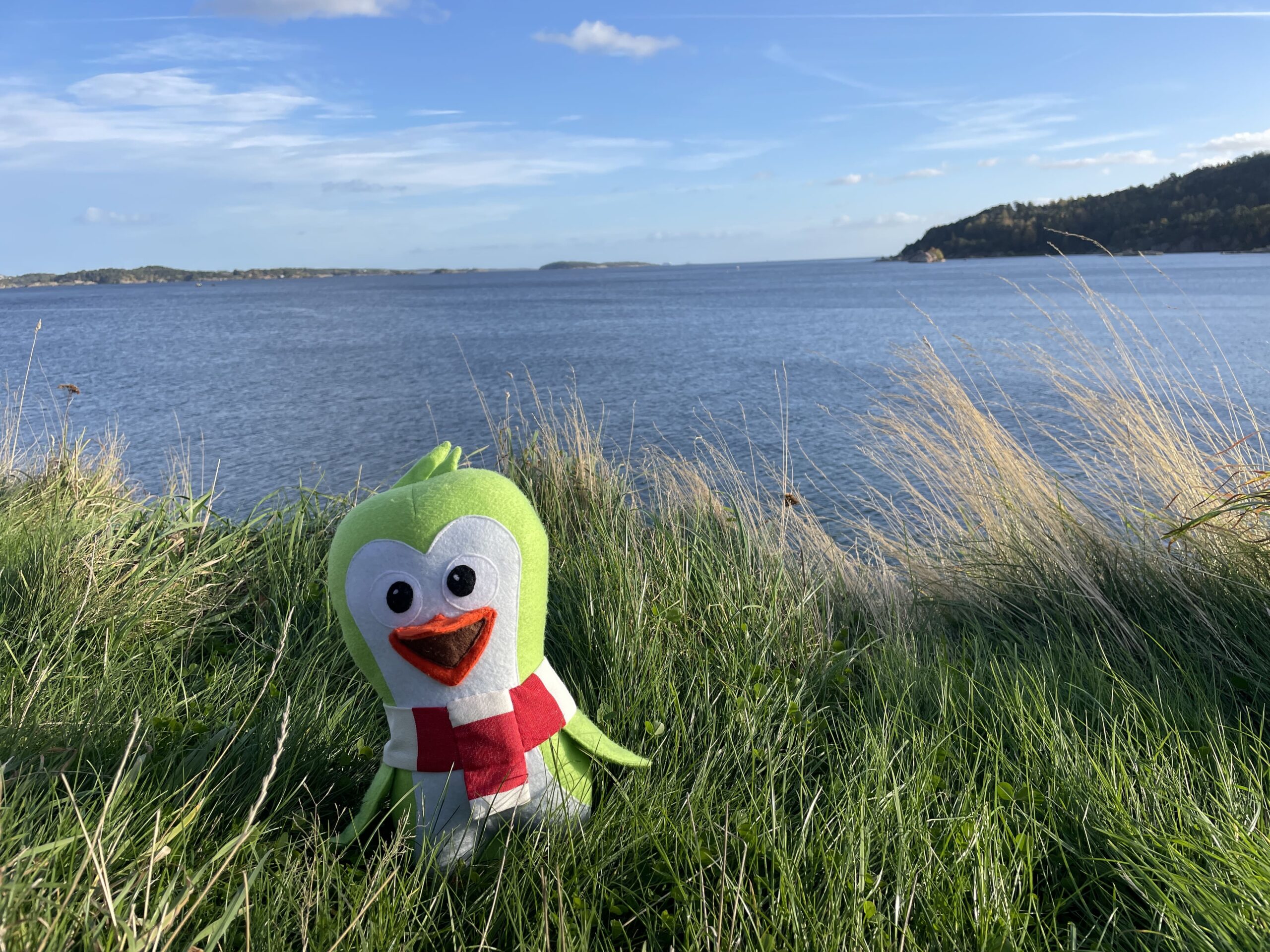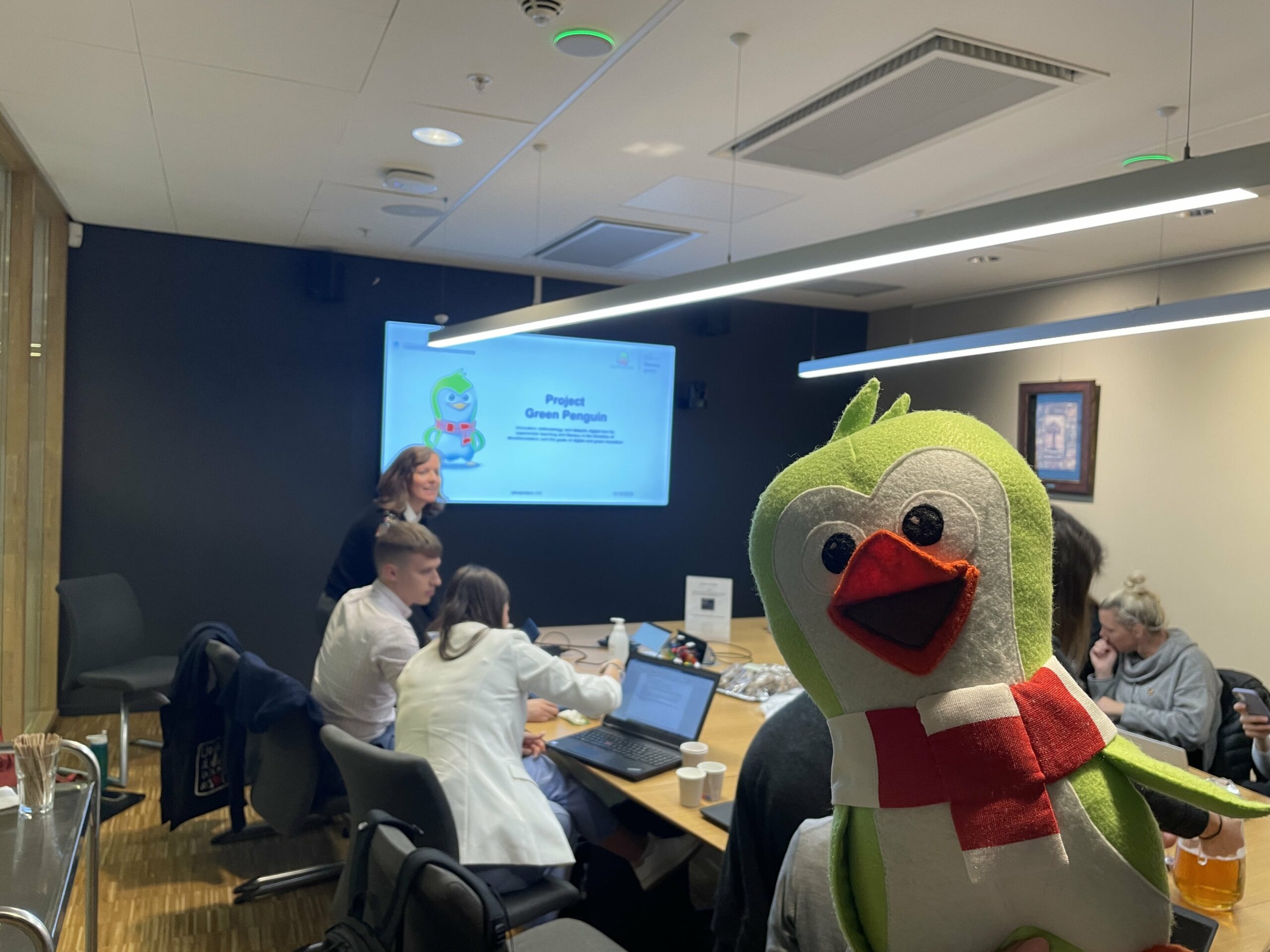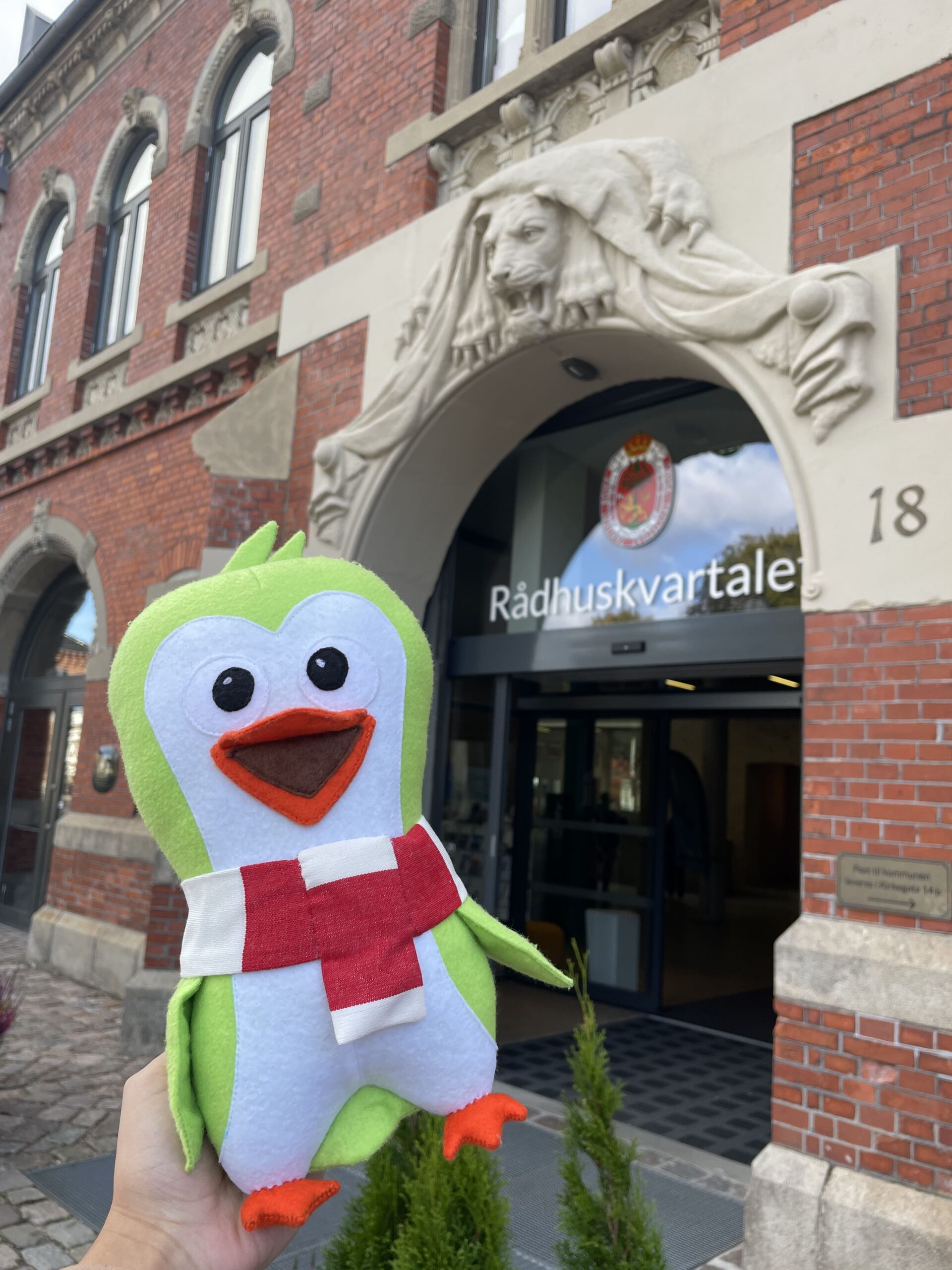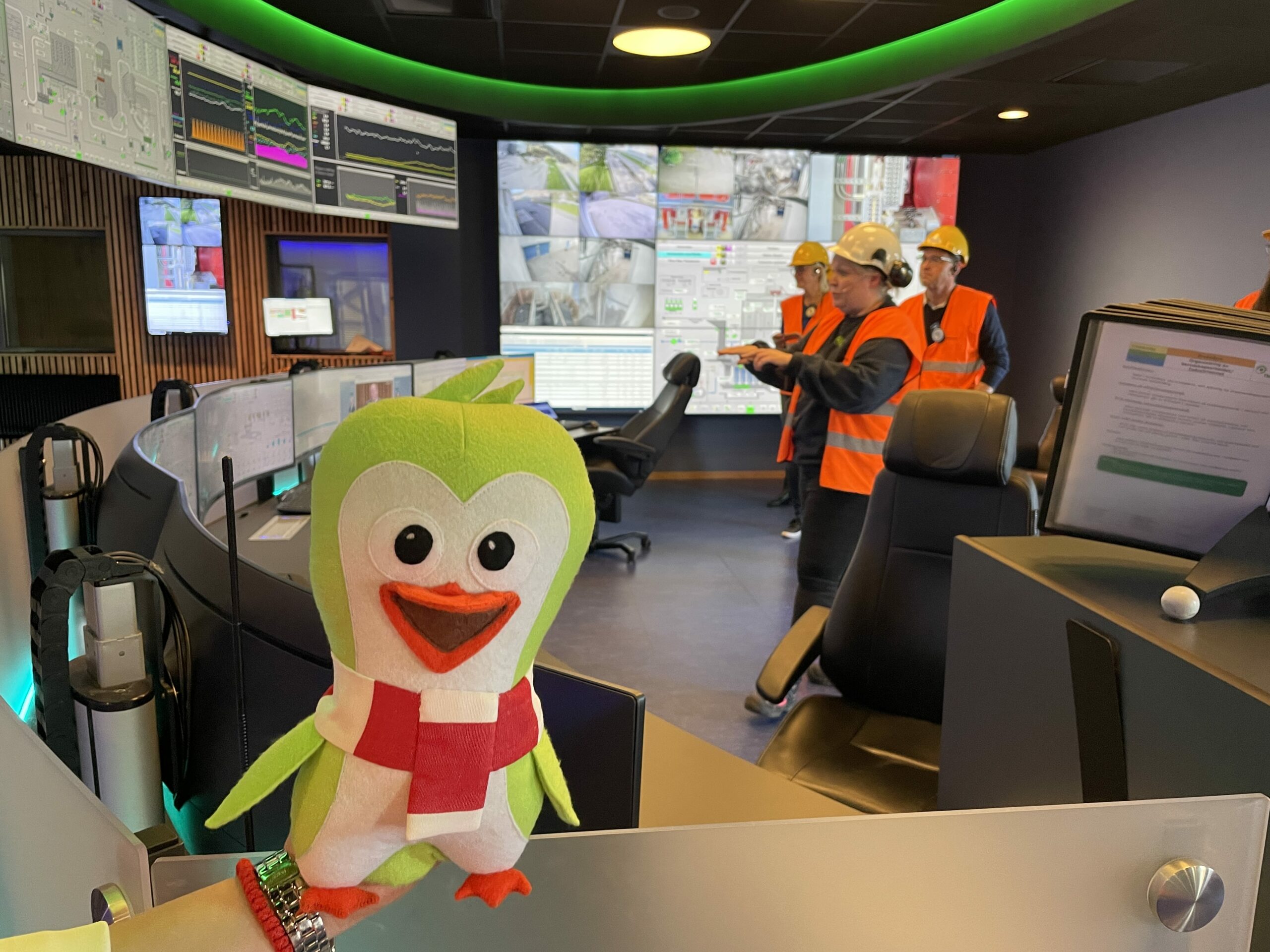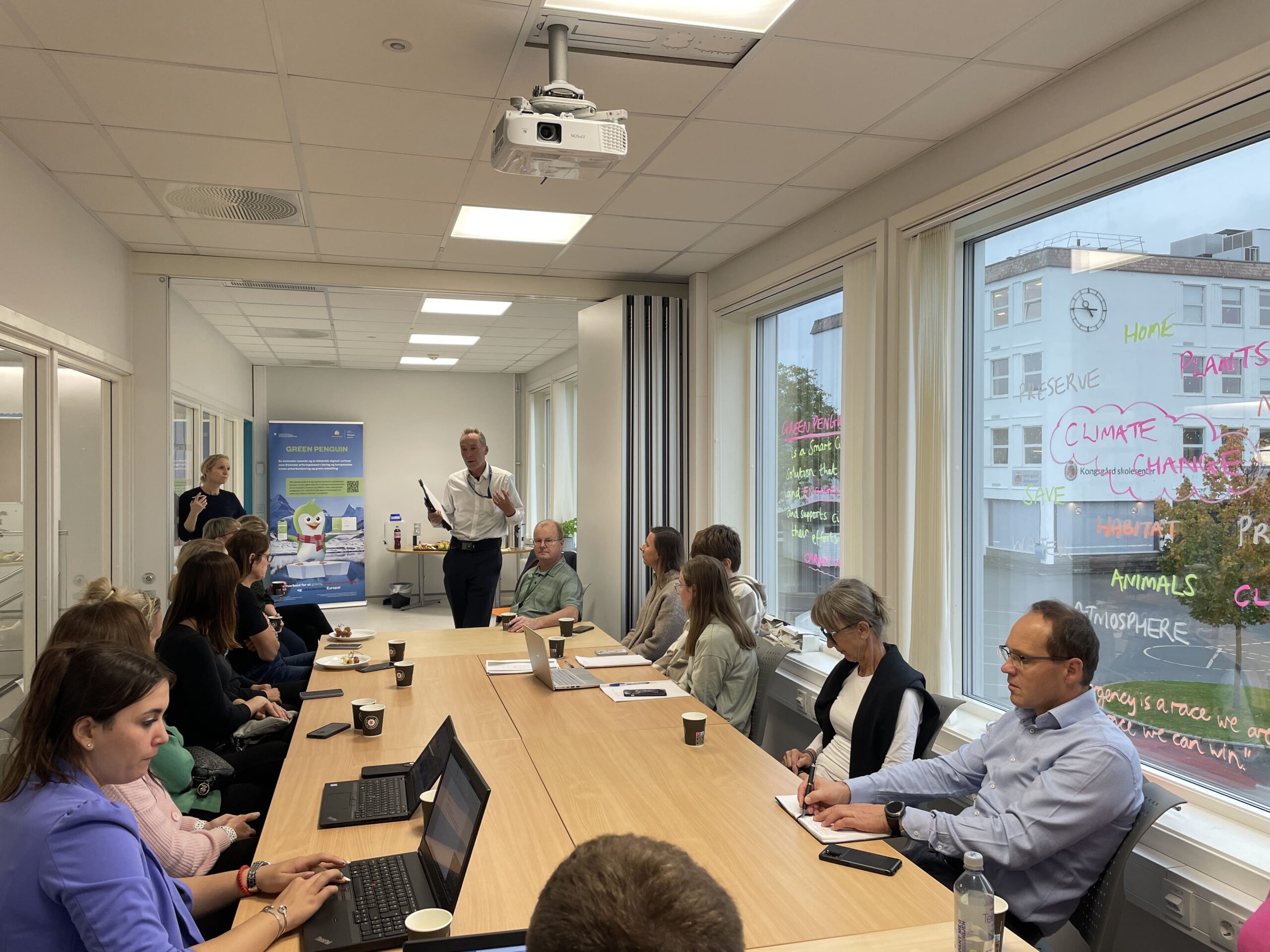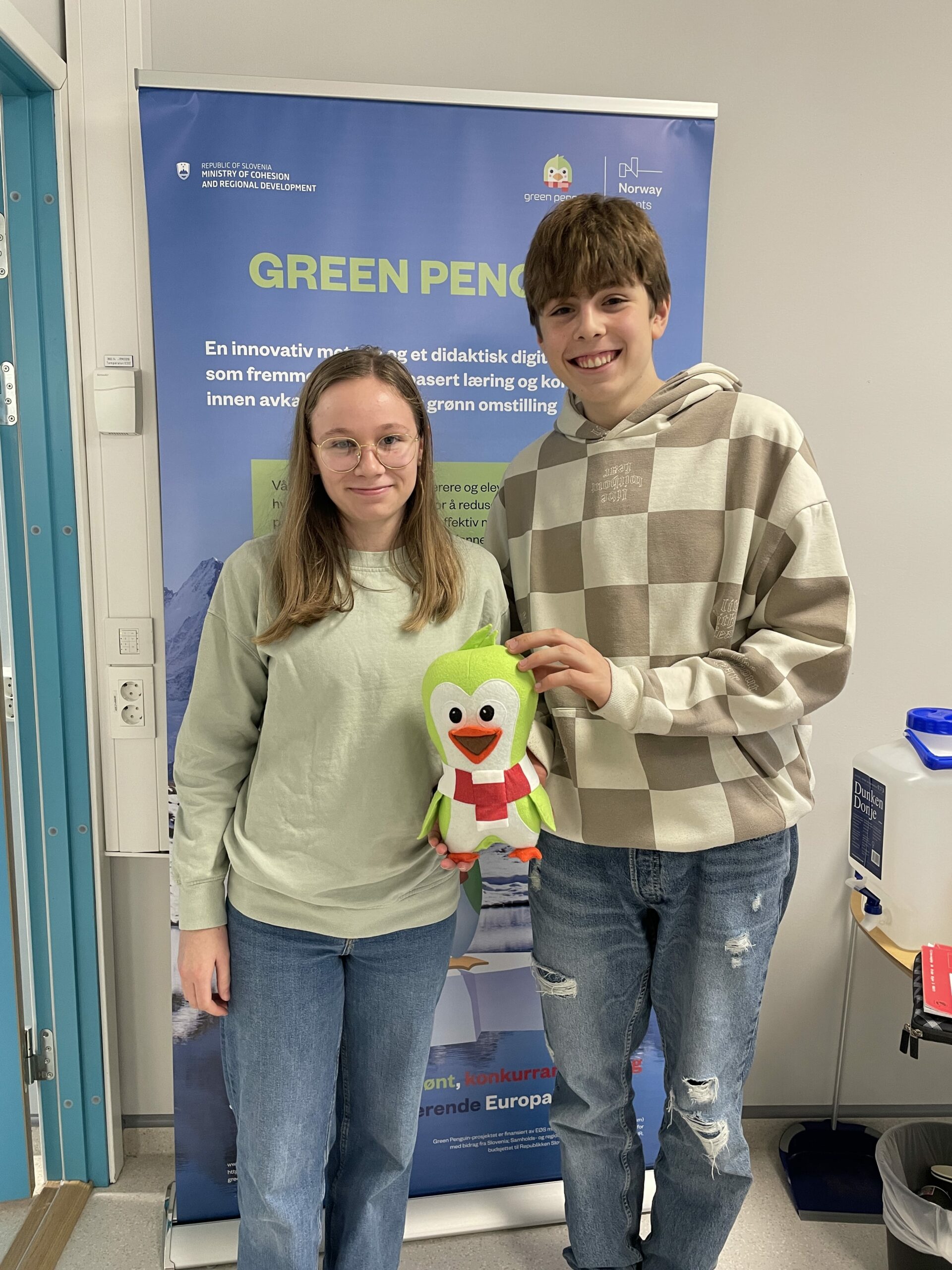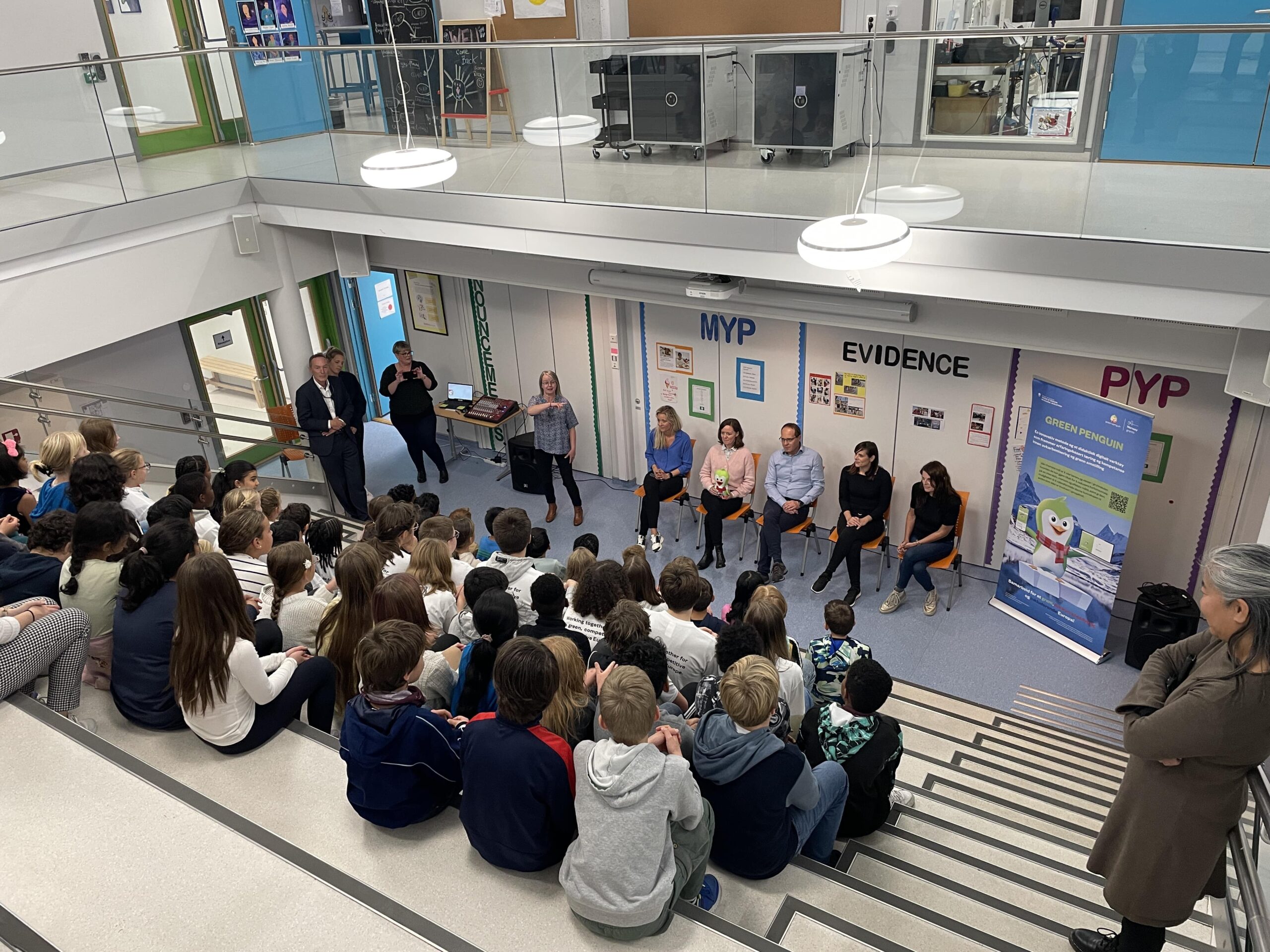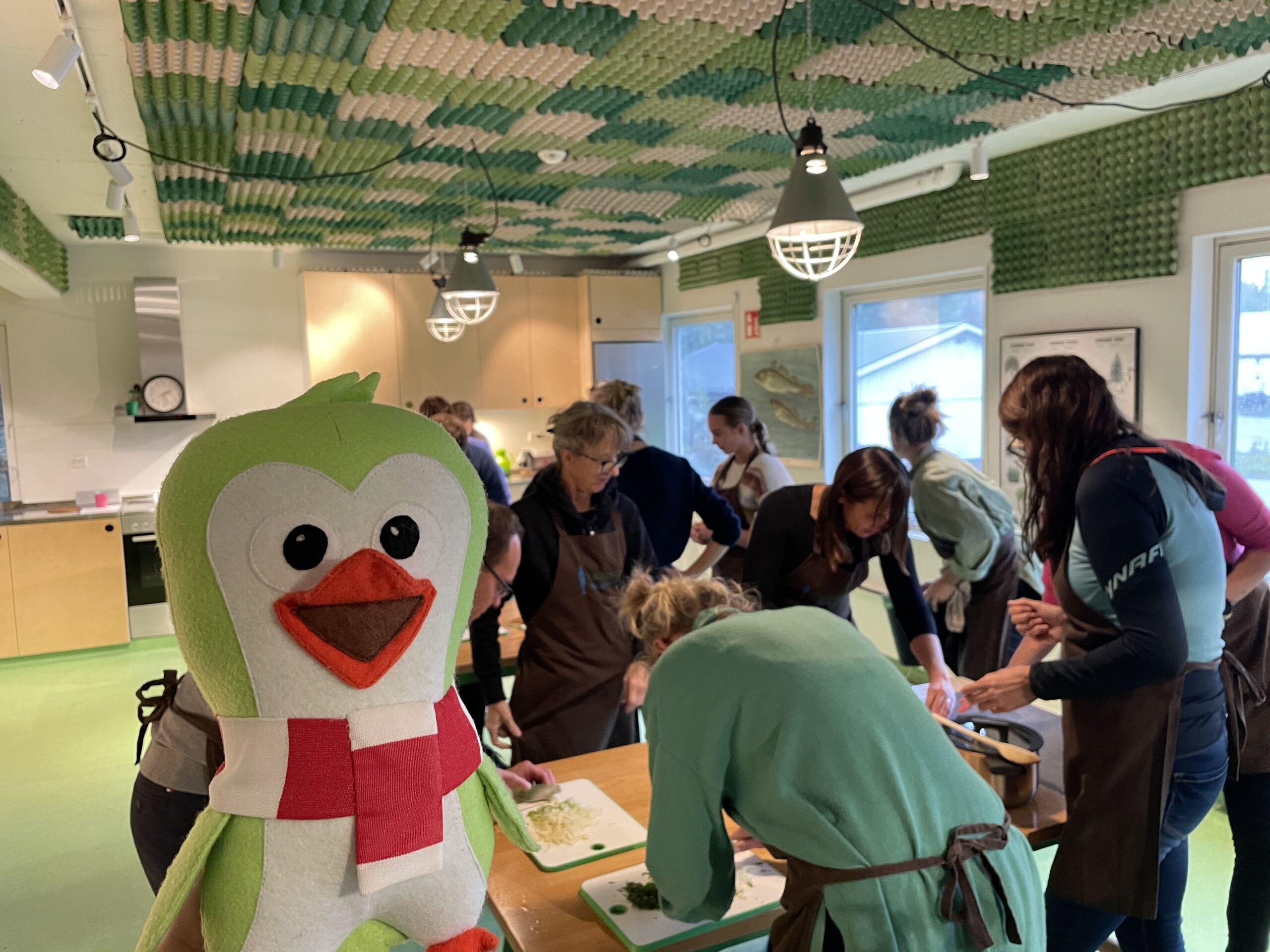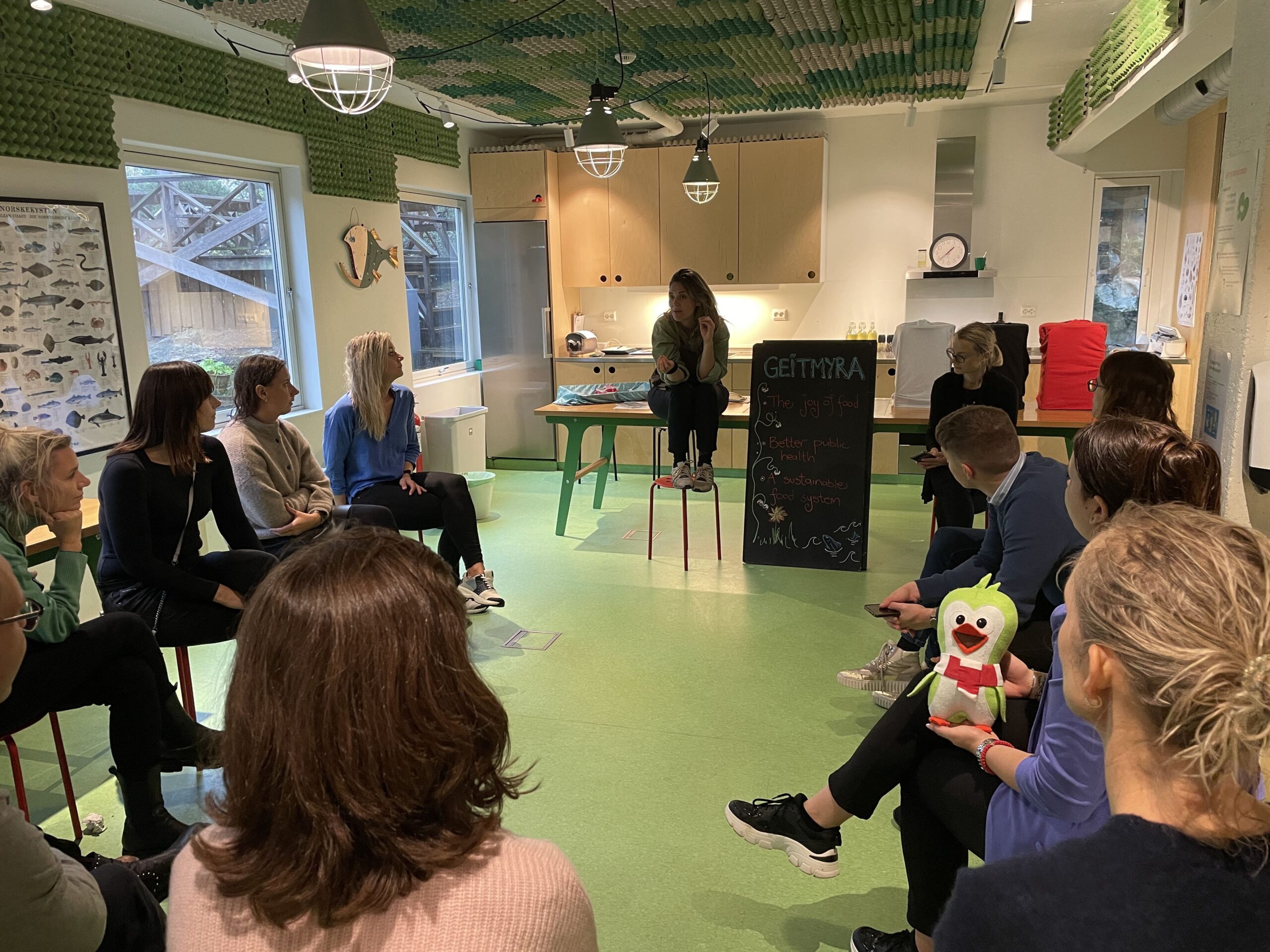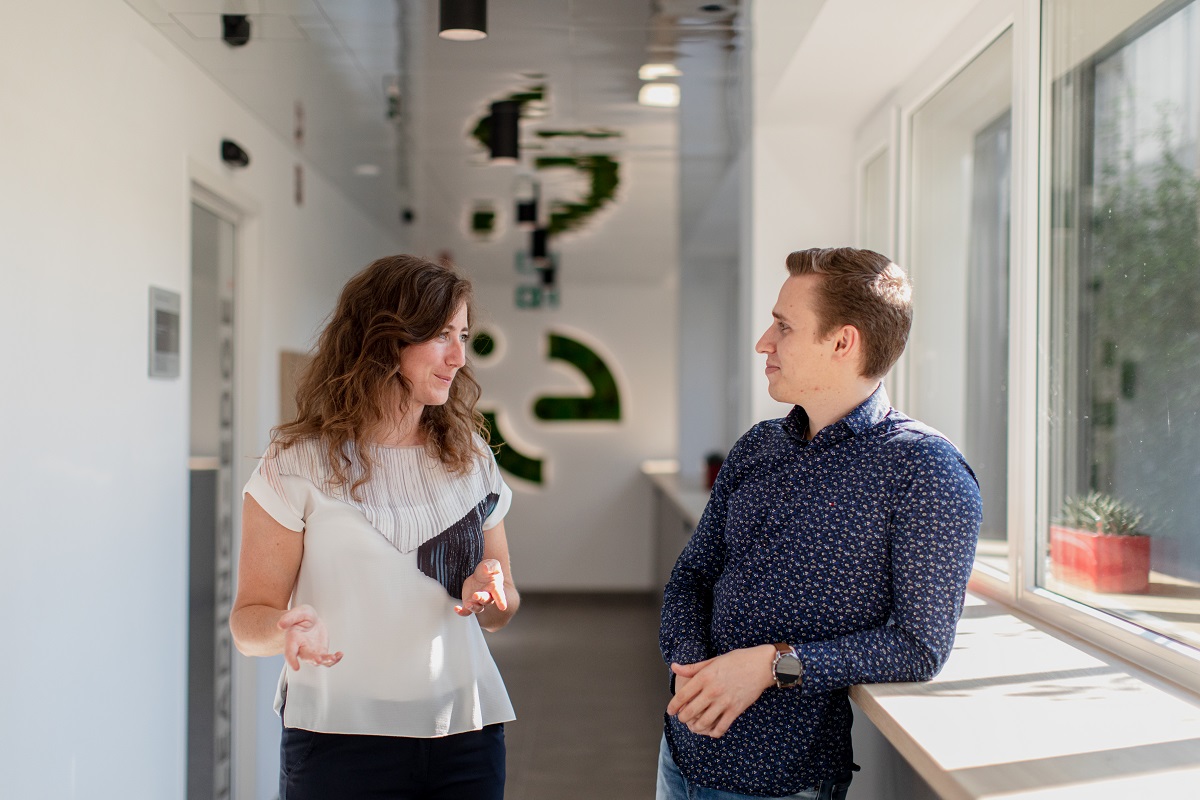The Green Penguin’s journey to Norway
On his journey to raise awareness about sustainable living, Green Penguin visited the beautiful city of Kristiansand, Norway, which is also home to one of the pilot schools testing the new app.
Kristiansand, one of the largest municipalities in the country, implements a wide range of sustainability initiatives that serve as examples of good practice for other municipalities in Norway and around the world. During the visit, Green Penguin discussed various sustainability initiatives together with the project partners (Iskraemeco, d.d., the City of Kranj, the City of Ljubljana, the Association DOVES-FEE Slovenia and FEE Norway). The municipality of Kristiansand is working to reduce its environmental footprint and become a more sustainable municipality, with a focus on educating residents about sustainable practices. Waste separation, the installation of ground bins (Big Bells) to reduce waste, and a public garden on the coast are just a few of the initiatives that contribute to a sustainable lifestyle.
As part of the presentation of Kristiansand’s sustainability initiatives, a tour of the Returkraft waste management facility in Kristiansand was also organized. The plant not only reduces the amount of waste that ends up in landfills, but also generates renewable energy from waste. The plant’s employees gave a presentation on the entire process, including the incineration of waste, the generation of electricity and heat, and how the facility works toward a cleaner environment. It is important to mention that the plant produces between 80 and 90% less emissions than regulated by the government.
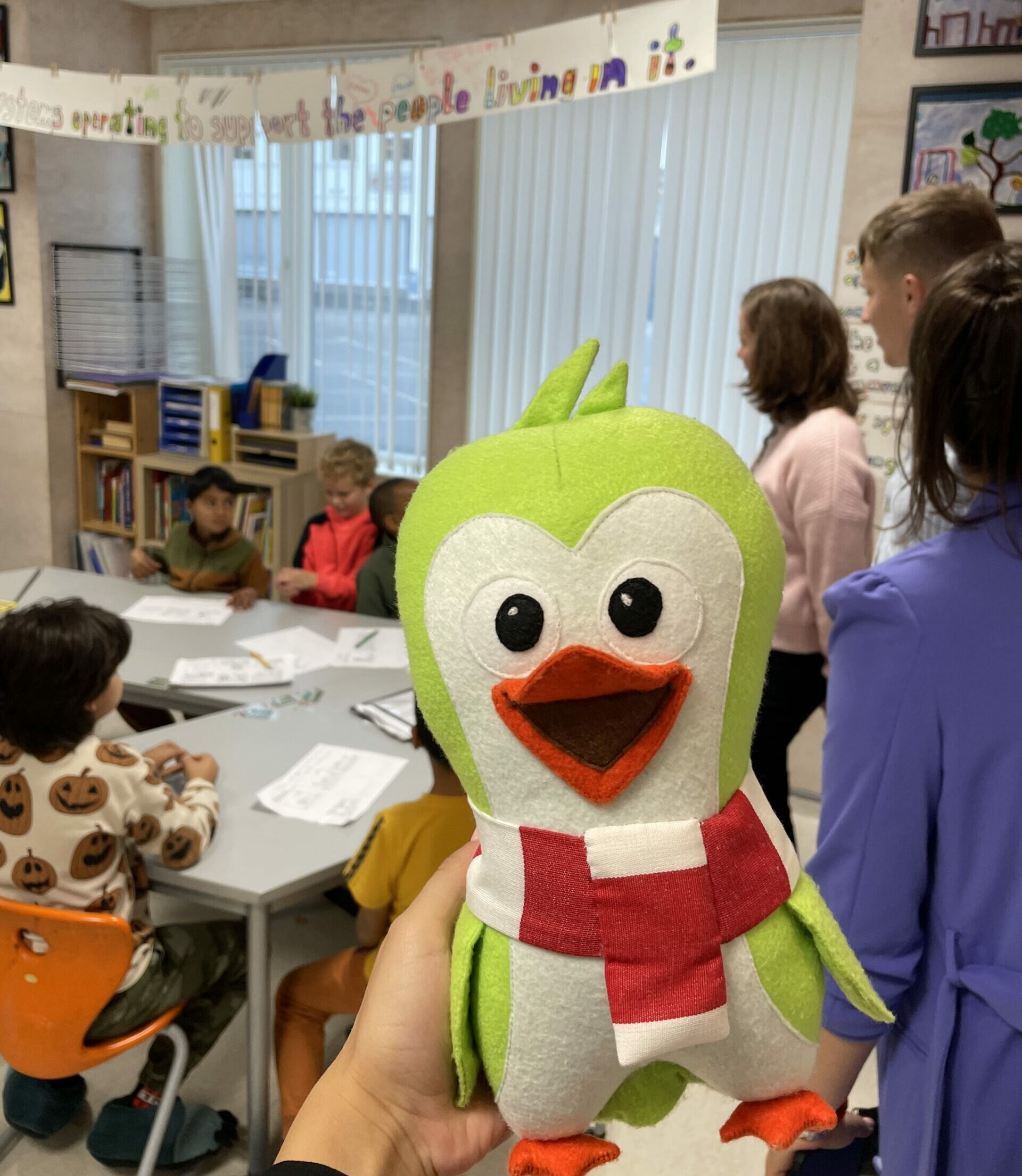
The Green Penguin also visited Kristiansand International School, where he spent time with teachers and students from different classes. At a round table, the project partners discussed sustainable lifestyles and environmental education. Particular emphasis was placed on the importance of educating teachers and students and raising awareness of the impact individuals have on the environment. The Green Penguin app and how it works was presented to the children at Kristiansand International School.
The Green Penguin ended his journey by arriving at Geitmyra Kristiansand, a food culture centre for children. Here, children can learn firsthand about the importance of sustainable food production. This is a great opportunity to learn to appreciate and care for food.
Green Penguin’s visit to Norway demonstrated the importance of sustainable practices, education, and raising awareness of individuals’ impact on the environment to create a better future for ourselves and future generations. This study visit also has broader significance for building bilateral cooperation within the Green Penguin project, as well as for continuing cooperation after its completion. The green App – Green Penguin – will help promote sustainable choices and practices among individuals.
Today, the Green Penguin project is being implemented by a consortium of organizations, namely: Iskraemeco, d.d., the City of Kranj, the City of Ljubljana, the Association DOVES-FEE Slovenia and FEE Norway who are implementing the international Eco-Schools programme. The project is co-financed by the Norwegian Financial Mechanism and Ministry of Cohesion and Regional Development. The Norwegian Financial Mechanism stands for Norway’s contribution to a green, competitive and inclusive Europe.
